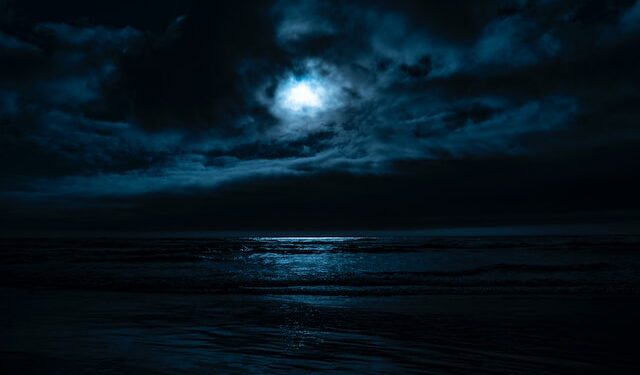
During the depths of my personal rock bottom, a friend gave me a copy of “The Dark Night of the Soul” by the 16th-century Spanish mystic and poet, St. John of the Cross. Many of us go through profound crises in life, indeed some crises could be termed a dark night or “noche oscura”. In this article we explore the concept of the dark night, its characteristics, and the resultant opportunities for growth.
During his imprisonment in a cramped prison cell as a result of his efforts to reform the Church, St. John of the Cross penned a collection of timeless poems that encapsulated the yearning of the soul for a connection with the Divine.
These verses, reportedly composed clandestinely on a scroll passed to him by a sympathetic guard, represent the quintessential embodiment of the spiritual seeker’s odyssey—a transformative passage from a state of alienated despair to a state of blissful union.
The dark night is characterized by a deep sense of despair, emptiness, and a feeling of being spiritually disconnected. It is often triggered by a significant life event or a series of challenging circumstances that shake one's faith, belief systems, or sense of identity.
The dark night is characterized by a deep sense of despair, emptiness, and a feeling of being spiritually disconnected. It is often triggered by a significant life event or a series of challenging circumstances that shake one’s faith, belief systems, or sense of identity.
This experience can be highly unsettling, as it confronts us with our innermost fears, doubts, and unresolved emotional wounds.
During the dark night of the soul, we may feel a profound sense of isolation and loneliness. We may question the purpose and meaning of our existence, experiencing a loss of direction and a sense of being adrift in the world.
The journey through the dark night involves facing and working through deep-seated fears, insecurities, and attachments that hinder personal growth and spiritual advancement.
Commentators have considered the dark night as most likely a psychiatric experience, a form of melancholia, of severe clinical depression, and various other DSM descriptors.
Indeed, my rock bottom attracted a number of diagnostic labels: depression, addiction, burnout. But a deeper reading of this work from 500 years ago, and relating it to my own experience, led me to conclude that a rigid psychiatric diagnosis omitted multiple dimensions of this experience. During the journey I rediscovered a missing spiritual dimension to my life.
In a spiritual context, the dark night of the soul refers to a profound and transformative experience of inner turmoil and spiritual crisis. It is a period of intense emotional and psychological suffering that one undergoes on the path to spiritual awakening, growth, and ultimately, enlightenment.
While the dark night of the soul is often associated with spiritual or religious contexts, it can also be experienced in other domains of life, such as personal relationships, career paths, or creative endeavors.
It represents a period of profound transformation, wherein individuals are compelled to confront and transcend their inner demons, allowing for deep healing and personal growth.
The experience of the dark night of the soul is not linear, nor is there a fixed timeline for its duration. It can be a prolonged and arduous process, requiring individuals to dive deep into their innermost being and navigate the shadows within.
It is a time of intense introspection, self-reflection, and soul-searching, as individuals reevaluate their values, beliefs, and life choices.
Ultimately, the dark night of the soul serves as a catalyst for spiritual, emotional, and psychological growth.
Ultimately, the dark night of the soul serves as a catalyst for spiritual, emotional, and psychological growth. It is through this process of facing and working through one’s deepest fears and struggles that individuals gain a profound understanding of themselves, the world around them, and their interconnectedness.
It can lead to a reconnection with one’s innermost essence and a renewed sense of purpose, meaning, and authenticity.
While the dark night of the soul can be a deeply challenging and painful experience, it is often seen as a necessary and transformative step on the path towards personal and spiritual enlightenment.
It is an invitation for all of us – physicians and not – to delve into the depths of one’s being, to confront and integrate the shadow aspects of the self, and to emerge with a greater sense of wholeness, wisdom, and compassion.
Are you in the dark night perhaps? We welcome you at our free Physicians Anonymous peer-support groups (available here).
If you are having thoughts of self harm or suicide, please check out our Resources page.
